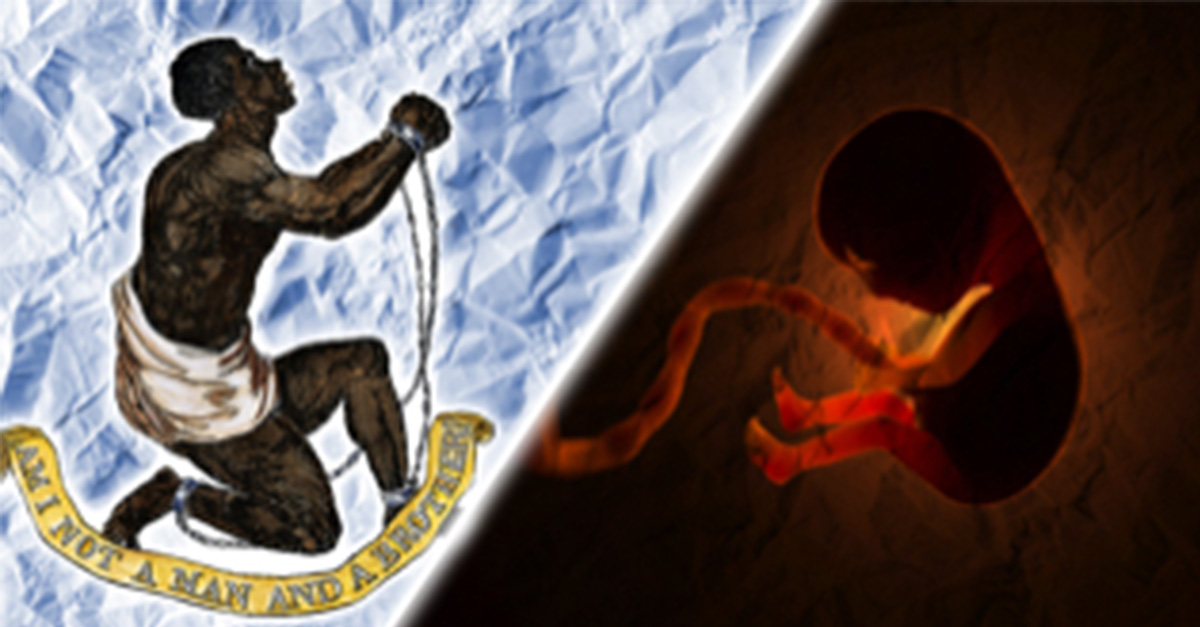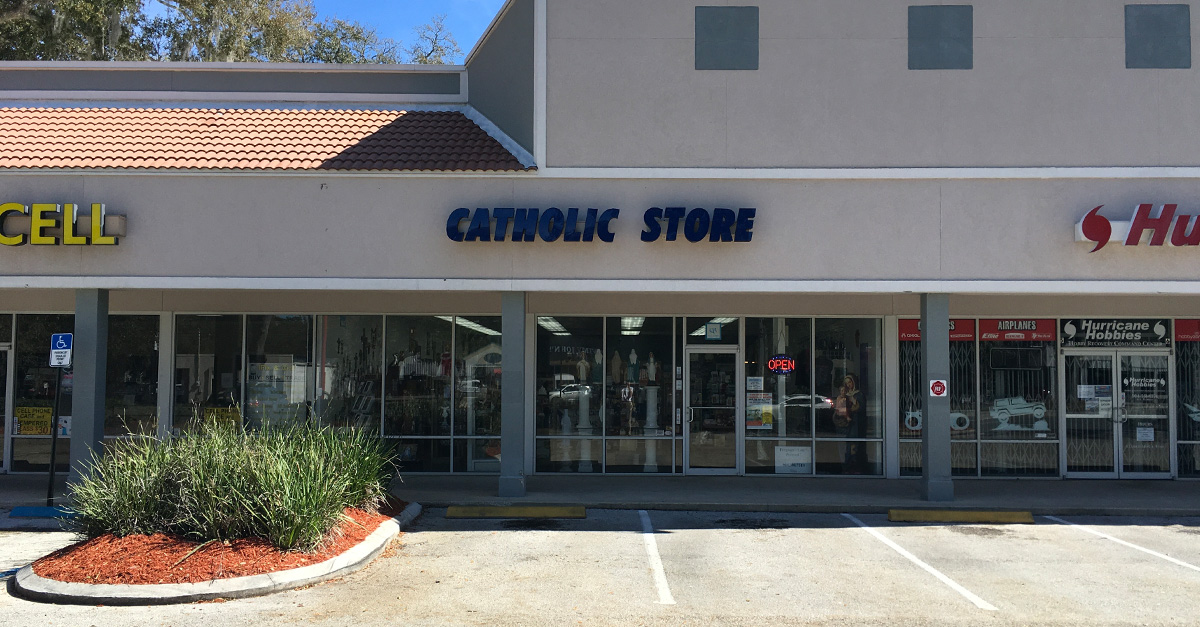


Get a free copy of Parental Rights & Education when you subscribe to our newsletter!

“Pro-aborts erupt into hysteria at the sheer mention of the parallels between slavery and abortion, but it’s hard for them to deny that their anti-life philosophy is consistent with both atrocities. It’s why they never refute the similarities, but instead shriek about how ‘inappropriate’ it is to draw such a correlation.”
–REAGAN ESCUDÉ SCOTT
We’ve all heard the tired and illogical quips from pro-abortion activists:
“My body, my choice.”
“Women will DIE without access to abortions.”
“No uterus, no opinion.”
“Don’t like abortion? Don’t have one.”
“You’re just pro-forced birth.”
Their simple-minded, irrelevant arguments are easily the mouthpiece for the multi-million dollar abortion lobby, yet they have successfully captured the minds of so many men and women, convincing them that their view of murdering children in the womb is somehow morally superior.
Unfortunately, there is nothing new under the sun (Ecclesiastes 1:9). Pro-aborts erupt into hysteria at the sheer mention of the parallels between slavery and abortion, but it’s hard for them to deny that their anti-life philosophy is consistent with both atrocities. It’s why they never refute the similarities, but instead shriek about how “inappropriate” it is to draw such a correlation.
It may be a question worth asking: Would they think differently of the murder of preborn human beings if the words related to abortion in their jargon were replaced with “slavery”?
Likely not, but it is an interesting thought exercise. Consider:
“My property, my prerogative.”
“Slaveowners will STARVE without someone to toil their land.”
“No slave, no opinion.”
“Don’t like slavery? Don’t buy a slave.”
“You’re just pro-forced starvation and poverty.”
See the point? But it goes much farther and grows much more nefarious than this.
As you read this, you took away one of two impressions: You were outraged and flabbergasted at such a comparison, as the pro-aborts tend to be. Or, you thought to yourself, “That’s a good point.”
But why?
Three reasons: Both evils dehumanize the victims; both evils exert authority over the fate of the victim; and both evils employ attacks on the victims’ defenders.
In order to successfully execute mass-scale oppression, society must see the victims as subhuman. It’s the only way to legitimize the task.
Author and scholar James Waller argues that, next to the us-versus-them ideology and blaming “the enemy,” dehumanization is one of three mechanisms that encourage the “social death of the victims.” It is a key component of exploitation that can influence public perception of a group of people through language.
During the slave trade, Africans were commonly referred to as chattel and negros and often depicted as animals and beasts. They were lined up and assessed like livestock and bought and sold like property. In his 1834 book, A Candid Appeal to the Citizens of the United States, pro-slavery author Simon Clough refers to blacks as “dregs of humanity” and “exactly intermediate between the superior order of beasts such as elephant, dog, and orangutan, and European or white men.” Not only this, but the factor for determining if one should be considered “less than” was if the individual was black.
As it pertains to the preborn, babies are commonly referred to as “fetuses,” “clumps of cells,” “parasites,” and “blobs of tissue.” On their website, Planned Parenthood refers to them as “products of conception” and “contents of the uterus.” A former manager of the organization reported that Planned Parenthood “does not refer to any unborn baby as a ‘baby’” and blacklists employees who acknowledge the humanity of the preborn. And like slavery, the factor for determining if one should be considered “less than” is arbitrary. With the preborn, a baby is “less than” if he or she is unwanted, is the wrong sex or race, was conceived in rape, or is somehow “abnormal.”
In the 17th century, “Slaves Codes” were established to regulate how slaves were treated by their owners. In most cases, slaves could be killed by their owners with no consequence, and this continued in the form of “lynch laws” even after slavery was abolished. Under these codes, there was a systemic authority-subordinate power dynamic between the slave owner and the slave. Supporters of slavery opposed any measure to lessen their authority over their slaves because the codes gave slave owners full jurisdiction over the slave. The idea of “my slave, my prerogative” was effectively written into the law.
Similarly, today’s bloodthirsty pro-aborts squawk: “my body, my choice!” Here, again, we have an authority-subordinate power dynamic. With abortion, the mother has full jurisdiction over the fate of her baby. Quite literally, the baby’s life is hers to grant or deny. Roe v. Wade and any state-instituted abortion law operates under the principle that the baby is the mother’s property; therefore, the mother can kill her baby without consequence.
Consider the “Born-Alive Abortion Survivors Protection Act,” which passed the U.S. House of Representatives in January and is currently pending in the Senate. It is designed to protect the lives of babies who survive abortions by criminally holding accountable abortionists who do not provide medical care to the baby. But supporters of abortion are so committed to their exploitative authority-subordinate position that they have rejected this legislation altogether in favor of exerting their authority over the vulnerable preborn human — even though the child at this point would be out of the womb, alive, and in desperate need of medical intervention.
Opposition is the biggest threat to any oppressor, which is why the opposition must be silenced at all costs. During the era of slavery, it was not uncommon for slavery supporters to burn and plunder the homes and churches of abolitionists. Underground Railroad agent and minister Marius Robinson was attacked by a mob who sliced his leg, beat him, tarred and feathered him, and left him on the side of a road 10 miles out of town. Presbyterian minister and abolitionist Elijah Lovejoy’s press building was torched and burned while he was inside. When he escaped, a mob was ready to meet him and beat him to death. The powers-that-be sought to ensure that anyone who dared threaten their enslavement business would be met with threats, violence, and even death so that their oppression would continue.
Today, those who work to end abortion in the United States are threatened with death, targeted by the FBI, and unjustly arrested. Pro-life pregnancy centers, which seek to provide healthcare, support, and resources for women with unplanned pregnancies, are vandalized, firebombed, and maligned by politicians and the mainstream media, even going so far as to accuse pro-lifers of treating women like the Taliban or to assert that American women are living in a world akin to the fictional Handmaid’s Tale.
Pro-lifers are unfoundedly labeled as “misogynists,” “oppressors of women,” and “violent extremists”; they are unjustly fired for supporting the fight for the preborn; they are screamed at, ridiculed, and harassed by pro-death activists; and they are imprisoned for menial trespassing violations.
And it won’t stop there. Just as during the slavery and Jim Crow eras, today’s bureaucrats in Washington and like-minded states are fighting tooth and nail to silence their opposition and further their murderous cause.
If one is honest, it isn’t hard to see the blatant similarities between two extremely significant human rights violations that result in death, suffering, and oppression. The tactics are the same. The justification is the same. And the end result is atrocious. Why must we tolerate abortion in this country any longer? Why must we play along with the rules of the pro-aborts and focus on incrementally eliminating the murder of innocent human beings?
Without minimizing the horrifying reality and impact of slavery, it’s important to recognize that abortion is in many ways a greater travesty that far too many in this nation are willing to justify, tolerate, and even celebrate. Abortion has resulted in the death of more than 63 million preborn babies in the United States alone. The remains of these babies are sold for research, flushed down toilets, and disposed of as “waste.” Human beings, innocent human beings, are treated with such little regard and humanity. It’s a genocide, a holocaust, of the most vulnerable among us — and we must not tolerate it any longer.
If we want to truly end abortion, we must effectively abolish it using the same means as heroes like William Wilberforce, whose faith and Christian principles guided him in the fight to end slavery. Not only did Wilberforce push forward abolition bills yearly in Parliament, but he spent 20 years changing hearts and minds with the Word of God. While some pro-life organizations today argue against giving preborn babies equality under the law, Wilberforce knew that because the men and women in the slave trade were made in God’s image, they too must be given equality, protection, and justice under the law.
In our fight to end abortion, we must recognize that, like the slave, the preborn baby is made in the image of God (Genesis 1:27), no matter the time of gestation or stage of development. Rejecting the dehumanizing rhetoric used to manipulate our view of the preborn is mandatory.
We must provide equal justice to the preborn baby, showing no partiality to the woman who chose to murder him (Deuteronomy 16:19). No woman should be given the authority under the law to hire a hitman to kill her child, and rejecting this unequal power dynamic between mother and baby in the womb is essential.
Finally, we must welcome the ridicule and be prepared to give an answer when challenged (1 Peter 3:15).
It is the Gospel, ultimately, that will change the hearts and minds of the people who support abortion, just as it was the Gospel that changed the hearts and minds of slaveowners. It is the Gospel that will bring peace and forgiveness to the post-abortive mother, and it is the Gospel that calls the medical abortionist to repentance.
We must always be equipped with the Word of God and prepared to share this good news with all, even the vilest oppressor. After all, “The light shines in the darkness, and the darkness cannot overcome it” (John 1:5).
Follow Reagan on Twitter! @thereaganscott
Ready to dive deeper into the intersection of faith and policy? Head over to our Theology of Politics series page where we’ve published several long-form pieces that will help Christians navigate where their faith should direct them on political issues.


Notifications